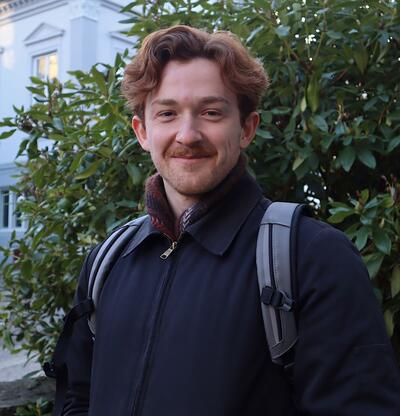Politics and Governance of Global Challenges, Master's, 2 years
- TuitionFor non eu/eea citizens
- Years2 Years
- Intake10
- Grade requirementsMinimum C
- LanguageEnglish
- ECTS120
- StartAutumn
Main content
What will you learn?
Throughout the programme, we analyse the historical development of the transnational system for addressing global challenges and critically examine contemporary interactions between different actors in international, national and local arenas, public and private. Students will develop the knowledge, skills and competences to understand, analyse and critically discuss global challenges from a politics and governance perspective, including working towards potential fair and sustainable solutions for addressing the complex issues facing our world today.
Project-based learning is at the core of the programme. It aligns the learning outcomes in terms of conceptual-analytical knowledge and skills with the student’s ability to understand, analyse and discuss real-world problems. Students will learn to conceptualise the politics and governance of global challenges in an informed manner, design projects in that area, and justify methodological choices, and communicate findings and policy recommendations to diverse audiences (scholarly and policy world).
Full list of learning outcomes
Student life
The first semester introduces students to the issue of global challenges and to the project-based learning approach, through a mandatory theory course and a mandatory research design course. Students start their mandatory advanced qualitative methods training.
The second semester continues with advanced quantitative methods training, a choice of elective courses offered at the department, and the second programme-specific theory course. Towards the end of the second semester, the student will be assigned a mentor/supervisor.
The third semester allows for considerable choice and flexibility for the student, where an internship, self-organised course and choices from the UiB portfolio of Master’s courses, or study abroad, are all possible options. The fourth semester is reserved for working on the Master’s thesis.
Activities that the students will encounter during the four semesters include lectures, guest lectures, seminars, workshops and tutorials, blogposting, self-organised student conferences, self-organised forms of learning and project based learning.
More information below
Politics and Governance, Master's Degree
Career
The programme provides competences relevant for a wide range of careers, in the public and private sector, for national and international NGO work, and for academic careers. In particular, the programme provides relevant education for those seeking a career working with the major challenges of our time, such as climate change, migration, inequality, health, food safety and more.
Job opportunities with a Master’s degree from the University of Bergen
More information below
Admission requirements and deadlines
In order to apply for the Master’s programme in Politics and Governance of Global Challenges you need a Bachelor’s degree of 3-4 years’ duration. The degree must include at least 80 ECTS in political science or a related (sub-)discipline, including 10 ECTS in qualitative and quantitative social science methods.
Applicants must submit a short (maximum 500 words) application statement in which they explain how their academic background connects to the Master’s programme. The application statement is for documentation purposes and is not evaluated.
You also need to document:
- Average grade of minimum C (equivalent to Norwegian grade C)
- Proficiency in English
Follow these links to find the general entry requirements and guidelines on how to apply:
- Citizens from outside the European Union/EEA/EFTA (1 December 2024)
- Citizens from within the European Union/EEA/EFTA (1 March 2025)
- Nordic citizens and applicants residing in Norway (15 April 2025)
All applicants with citizenship from outside the EU/EEA must pay tuition fees.
More information below

Study structure
The programme covers two academic years (four semesters) and starts in the autumn. Most students conduct some form of fieldwork for their Master’s project.
First semester
- GOV351 Understanding Global Challenges (10 ECTS)
- GOV352 Researching Global Challenges (10 ECTS)
- GOV353 Qualitative Methods (10 ECTS)
Second semester
- GOV321 Quantitative Methods (10 ECTS)
- Elective courses (10 ECTS)
- GOV355 Conceptualizing Global Challenges (10 ECTS)
Normally, four elective 5 ECTS courses and three to four elective 10 ECTS courses are offered in the second semester.
A supervisor is appointed for your Master’s project.
Third semester
- GOV371 Internship (30 ECTS) or GOV372 Self-organised Course and courses across UiB study programmes (for a total of 30 ECTS, of which the self-organised course can cover 10 ECTS), or Mobility/Study Abroad (30 ECTS)
Fourth semester
-
GOV380 Master’s thesis (30 ECTS)
Study abroad
It is possible to study abroad during the programme. We recommend exchange in the third semester, which is specifically designed to allow for student choice and exchange.
See list of recommended exchange agreements
Further studies
With an Master’s in Politics and Governance of Global Challenges you will qualify for PhD training.
Questions about the study?
Phone: +47 55 58 98 50
E-post: studieveileder.gov@uib.no
Study plan
Full list of learning outcomes
